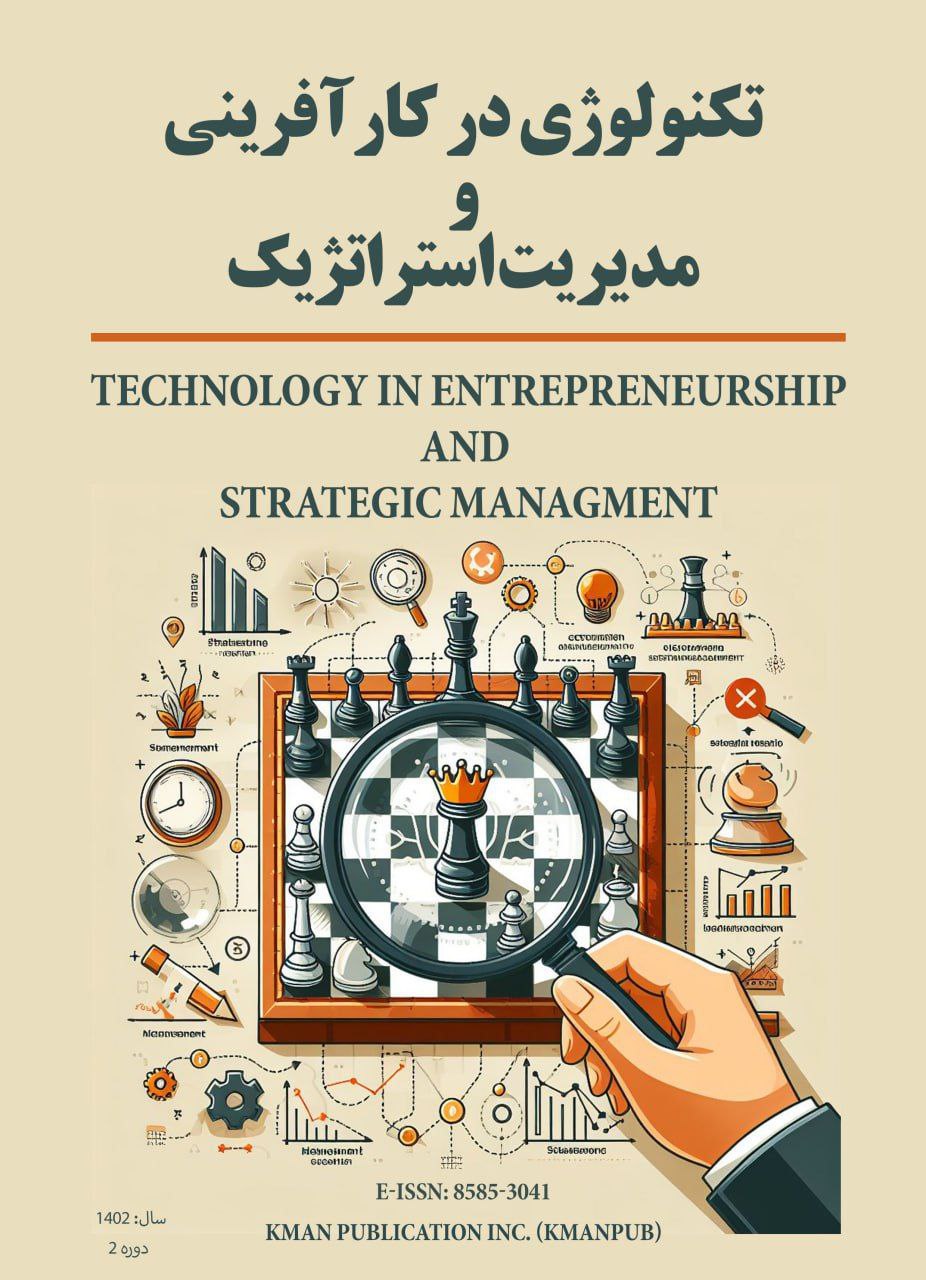شناسایی ابعاد مدل شایستگی خط مشی گذاران در حوزه امنیت
کلمات کلیدی:
شایستگی , خط مشی گذاران, حوزه امنیتچکیده
پژوهش حاضر با هدف شناسایی ابعاد مدل شایستگی خط مشی گذاران در حوزه امنیتانجام شده است. این تحقیق از حیث هدف اکتشافی و از نظر روش از نوع تحقیق کیفی بوده است ابعاد و شاخصهای خط مشی گذاران از طریق تحلیل مضمون برای تعیین ابعاد و شایستگی خط مشی گذاران مشخص شد.جامعه آماری این بخش از تحقیق را منابع نوشتاری مرتبط با خط مشی گذاران در استانهای اصفهان چهارمحال و بختیاری و کارشناسان خبره حوزه خطمشیگذاری ولی با سابقه کار حداقل ۱۰ سال تشکیل داده که 16 نفر به شیوه هدفمند به عنوان نمونه انتخاب شدند. نهایتاً مدل شایستگی خط مشی گذاران در حوزه امنیت شامل 6 بعد1-تخصص درامر خط مشی گذاری.2- مشورت با دیگران و توجه به نظرات و پیشنهادات خبرگان.3- جناحی نبودن و عدم منفعت طلبی شخصی.4- تعهد و پیابندی به نظام.5- توجه به منافع عمومی.6- داشتن درک مسائل امنیتی. وهفتاد شایستگی حط مشی گذاری استخراج شد.
دانلودها
مراجع
Abbasabadi, H., Kord, B., & Imani, A. (2022). Identifying Dimensions and Designing an Optimal Evaluation Model for Public
Policies in Iran with a Good Governance Approach. 1st National Conference on Theoretical Approaches and Modern
Technologies in Administrative Sciences,
Abbasi, H., & Daneshfard, K. (2021). The Pattern of Citizen Participation in the First Stage of Public Policy (Identification of
public Issues). Strategic Management Studies of National Defence Studies, 11(42), 270-247.
https://smsnds.sndu.ac.ir/article_1463_c16653d150382208c221fc31a3e53cbc.pdf
AlRaeesi Eman Jasim, H., & Ojiako, U. (2021). Examination of Legal Perspective of Public Policy Implementation on
Construction Projects Arbitration. Journal of Legal Affairs and Dispute Resolution in Engineering and Construction, 13(3),
https://doi.org/10.1061/(ASCE)LA.1943-4170.0000474
Ana, Kustiawan, I., Ahman, E., Zakaria, S. Z. S., Muktiarni, M., Dwiyanti, V., Saripudin, S., & Kahoerunnisa, I. (2020).
Defining Vocational Teacher Competencies in Industry 4.0 From the Perspective of Policymakers. Journal of Engineering
Education Transformations, 34(0). https://doi.org/10.16920/jeet/2020/v34i0/157884
Angez-e-Ghods, A., & Abdi, B. (2024). Designing an Iranian-Islamic Model of Public Policy: Explaining the Role of
Specialized Institutions. Scientific Quarterly of Islamic-Iranian Progress Model Studies, 12(1), 219-258.
Blacksmith, N., Behrend, T., Dalalb, R., General, T. L., & Hayes. (2019). Mental ability and decision-making competence:
Theoretically distinct but empirically. Personality and individual differences. https://doi.org/10.1016/j.paid.2018.10.024
Cave, E., & McKeown, P. (1993). Managerial Effectiveness: The Identification of Need. Management Education and
Development, 24(2), 122-137. https://doi.org/10.1177/135050769302400202
Esmaili, M. R., Sepahvand, R., & Vahdati, H. (2016). Identifying the Competencies of Islamic Consultative Assembly
Representatives Using the Fuzzy Delphi Method. Journal of Public Administration Perspective, 7(2), 105-126.
https://jpap.sbu.ac.ir/article_95704.html
Ghorbani, M. H., & Vahdani, M. (2016). Designing a Model of Competences of Entrepreneurs in Iran’s Sports Industry. Sport
Management Studies, 8(39), 205-228. https://doi.org/10.22089/smrj.2016.890
Hamidi, A., Faghihi, A., & Teimoornezhad, K. (2024). Identifying and Ranking Factors Affecting Policymaking of Public
Administrators' Education. Public Management Researches, 16(62), 63-96. https://doi.org/10.22111/jmr.2022.42740.5807
Mobini Dehkordi, A., Ahmadi, H., & Delavar, A. (2018). Designing strategic entrepreneurship competencymodel for the
country senior managers. Interdisciplinary Studies on Strategic Knowledge, 2(7), 127-150.
https://issk.sndu.ac.ir/article_312.html
https://issk.sndu.ac.ir/article_312_944fde4c616e8d245684f92e59e4e9e1.pdf
Naderi, G. (2020). Examining competency in the policymaking system of the Islamic Republic of Iran in theory and practice
(with an emphasis on the legislative and executive branches). Islamic Government Quarterly, 24(4), 157-184.
https://mag.rcipt.ir/article_110618.html
Sakib, M. N., Rabbani, M. R., Hawaldar, I. T., Jabber, M. A., Hossain, J., & Sahabuddin, M. (2022). Entrepreneurial
Competencies and SMEs’ Performance in a Developing Economy. Sustainability, 14(20).
Shojaei, A. A., Arefi, M., Fathi Vajargah, K., & Shams Morakani, G. (2019). Designing an Entrepreneurship-based
Competency Model for Graduates in Educational Sciences. Journal of Science and Technology Policy, 12(1), 77-88.
دانلود
چاپ شده
ارسال
بازنگری
پذیرش
شماره
نوع مقاله
مجوز
حق نشر -1 تکنولوژی در کارآفرینی و مدیریت استراتژیک

این پروژه تحت مجوز بین المللی Creative Commons Attribution-NonCommercial 4.0 می باشد.











